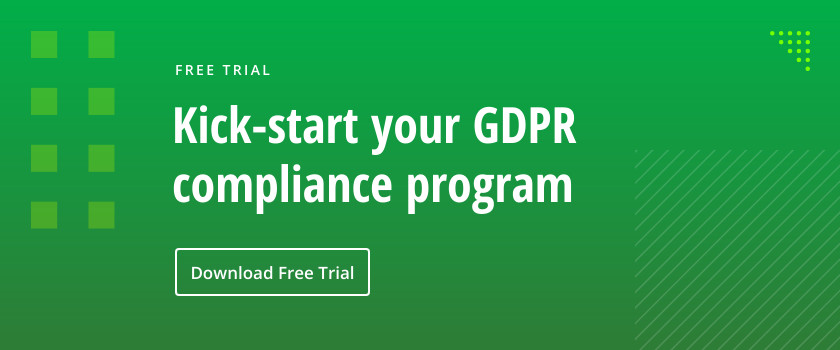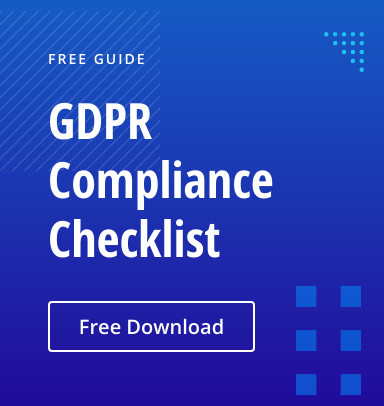Most media coverage of the GDPR focuses on the multimillion-dollar fines businesses can face if they fail to properly protect regulated data. Vendors and suppliers play the same fear card to boost sales of their products and services. Let’s take a look at some of the GDPR carrots that are ignored in all the fear-mongering about its sticks.
While the price of non-compliance can indeed be steep, concentrating exclusively on the punitive side of the GDPR neglects the very real benefits of compliance. Taking steps to comply with the GDPR can also help you make your business more efficient, secure and competitive, driving new business opportunities. Let’s take a look at some of the GDPR carrots that are ignored in all the fear-mongering about its sticks.
Benefit #1. Enhanced cybersecurity
The GDPR can prompt you to establish security-conscious workflows, which will help you avoid costly data breaches and data loss. The legislation requires organizations to adopt administrative and technical measures to protect the personal data of EU citizens in particular — but it’s nearly impossible to ensure the integrity and security of only that data and leave the rest of your IT environment out of scope. In fact, the regulation encourages you to reevaluate and improve your overall cybersecurity strategy. By establishing control over the entire IT infrastructure, building healthier data protection workflows and streamlining security monitoring, you can reduce your attack surface, better understand what is going on across your network, and detect and respond to cyber attacks faster and more efficiently.
Benefit #2. Improved data management
To comply with the GDPR, you need to know precisely what regulated information you have. But having a clear understanding of what sensitive data you store is valuable for more than just compliance — it will also help you refine your data collection policies, optimize your storage and improve your data management processes.
Having a clear understanding of what sensitive data you store is valuable for more than just compliance
First, you will be able to prune out ROT — redundant, obsolete and trivial files that have no business value. Getting rid of this data will slash storage and processing costs. And if any of this ROT is sensitive data, such as former customers’ personal information, you’ll also reduce risk; why continue to take responsibility for data that no longer has value to you?
Second, you’ll be better positioned to reorganize your data storage and index the data to make it easily searchable. This will help you comply with the GDPR’s “right to be forgotten” by enabling you to find and delete all the personal data for a given individual. And it will make your staff more productive and efficient in their everyday tasks, since they’ll be able to quickly find the data they need.
Benefit #3. Increased marketing ROI
The GDPR requires organizations get a subject’s consent to process their personal data. By implementing an opt-in policy to comply with this requirement, and purging ROT like lost or unengaged leads, you will transform your bloated database into a lean, fine-tuned source of highly relevant leads and customers who genuinely want to hear from you.
You will transform your bloated database into a lean, fine-tuned source of highly relevant leads and customers who genuinely want to hear from you
With this information at hand, you will be able to tailor your message to the specific needs and habits of a clearly defined audience that has high interest in your brand. This granular marketing approach will result in higher click-through and conversion rates and more social sharing, and increase your marketing ROI because your budgets and efforts will be spent wisely.
Benefit #4. More loyalty and trust
GDPR compliance can support your aspiration to build more trusting relationships with both customers and the public at large. When gathering consent to use a subject’s data, you will have to explain clearly and concisely how you will be using that data. Since consumers are becoming more concerned about how their data is handled, the transparency and responsibility you demonstrate will encourage trust in your brand. In other words, achieving GDPR compliance enables you to demonstrate that you care about the privacy of your customers and stand head and shoulders above your competitors.
Benefit #5. Leadership in establishing a new business culture
Many organizations today gain market share by being animal-friendly, eco-friendly or LGBT-friendly. Why not become privacy-friendly?
The GDPR is a promising first step towards a new business culture of respecting and securing the sensitive data of customers. This mindset could well become the norm, just as separating food waste from plastic or recycling old bulbs have become standard practices. By adhering to the GDPR, you will be a leader in cultivating the values of data security in your employees and nurturing social responsibility in business.
While there’s no denying that complying with the GDPR is hard work, it’s time to look forward to the benefits compliance will bring. Enhancing the security and privacy of sensitive data will help you avoid data breaches, improve employee productivity, run more effective marketing campaigns, build trust with customers and stand out from your competition. The GDPR is your opportunity to excel.


